Title : The “Tricks” of African Swine Fever Virus Escaping Host Anti-Viral Innate Immune Responses
Abstract:
African swine fever is an acute, highly contagious infectious disease caused by African swine fever virus (ASFV). The virus can infect domestic pigs or wild boars. In the past four months, more than 16,000 ASF cases have been reported in 27 countries. Therefore, prevention and control of ASF is still the toughest problem in the world. Upon ASFV infection, host cGAS sensed ASFV genomic DNA to promote cGAMP production. cGAMP binds to the ER-localized adapter protein STING, which then recruits TBK1. The activated TBK1 phosphorylates IRF3 and promotes it to translocate to the nucleus, inducing of type I IFN production. During the processing, RNF128 promotes ubiquitination of TBK1, which is necessary for TBK1 activity. ASFV I215L recruits RNF138 and enhances the interaction between RNF138 and RNF128, which promotes RNF138 to degrade RNF128, leading to reduce RNF128-mediated K63-linked ubiquitination of TBK1 and type I IFN production.
In this study, we also found that host Vimentin can sense ASFV genomic DNA to activate NLRP3 inflammasome. The active caspase-1 cleaves GSDMD to produce GSDMD-N fragment, which could form a hole on the cell membrane to release inflammatory cytokines. In one way, ASFV MGF505-7R interacts with NLRP3 to block NLRP3 inflammasome activation. In another way, ASFV S273R protein cleaves GSDMD-N fragment to produce two small fragments, which could not form hole on the cell membrane to release inflammatory cytokines. Recently, we found that pS273R cleaved GSDMD to inhibit inflammatory responses to promote ASFV replication. Taken together, during the past five years, our lab found that many ASFV proteins are involved in a regulating cGAS-STING signaling pathway, IFN-JAK-STAT signaling and inflammatory response signaling.
Audience Take Away:
- ASFV infection inhibited host antiviral innate immune responses?
- pI215Lrecruited RNF138 to degrade RNF128 to inhibit interferon production, resulting in ASFV replication;
- pMGF505-7R interacted with IKKα in the IKK complex to inhibit NF-κB activation and bound to NLRP3 to inhibit inflammasome formation, leading to decreased IL-1β production.
- ASFV-encoded protein S273R (pS273R) cleaved swine GSDMD in a manner dependent on its protease activity to promote ASFV replication.



